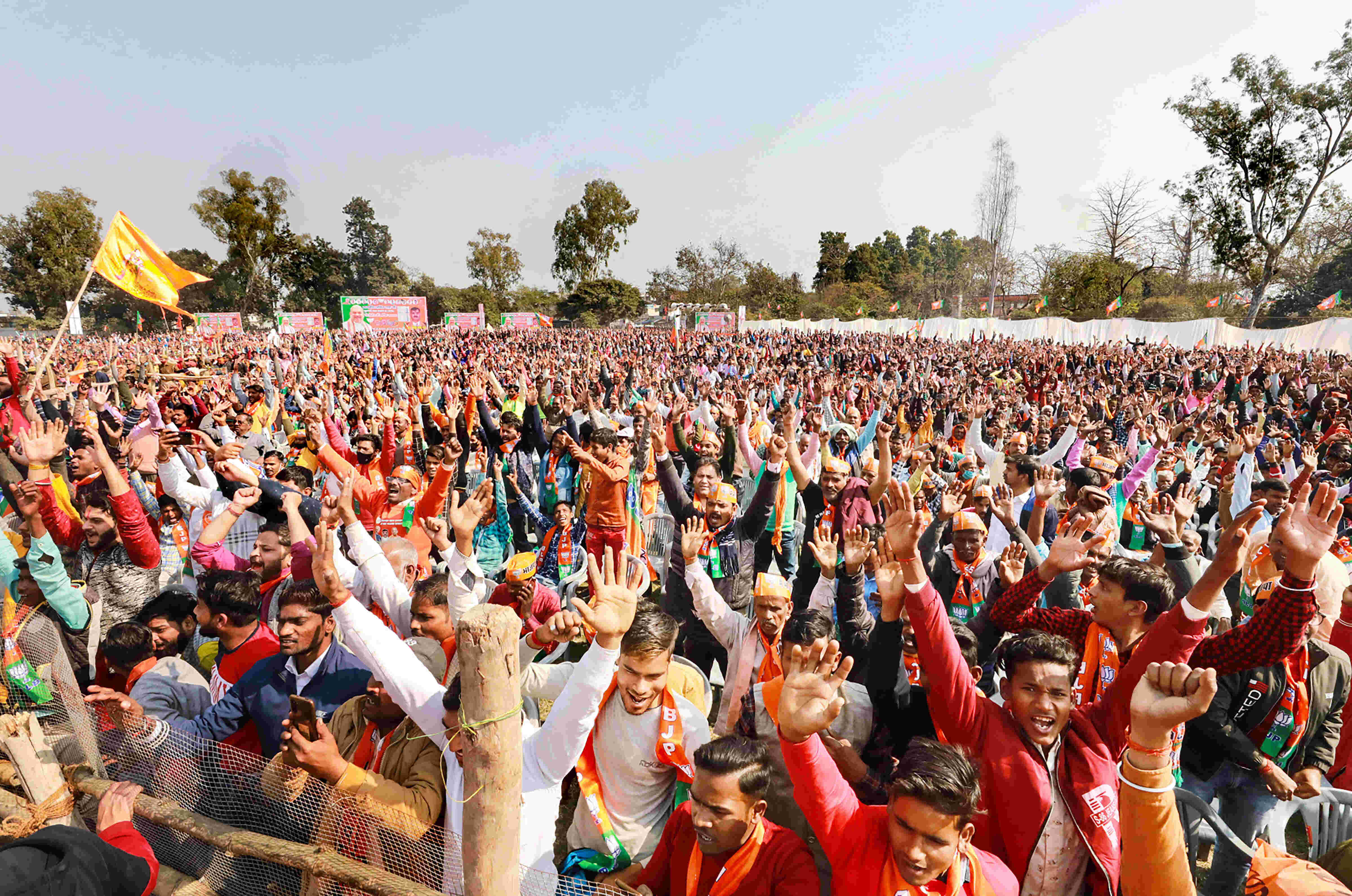Need for a relevant rhetoric
The landscape of UP politics is marred by obsolete discourse around caste and religion, which needs to be replaced with issues affecting people's life

With the ongoing Uttar Pradesh elections — the focus being on issues like religion and caste that can be understood from the statements like 80:20 vote or actions like pitting the so-called lower castes against the upper castes by dividing constituencies on the basis of dominance of particular castes — there is a need to think whether the challenges faced in the last two years of the pandemic require a change of rhetoric going forward. There is also a need to analyse why the focus largely remains on issues like religion and caste and not on more significant issues affecting social and economic development on the ground, like health, education, women empowerment and livelihood. Though there have been statements like Ladki hoon lad sakti hoon, it remains to be seen whether these will have any impact on the political narrative of the state.
Although identity politics has been at the centre stage of Uttar Pradesh politics for the last three decades, the frequency with which the issues based on one's identity, expressed through religion or caste, has increased manifold since 2017 when the BJP came into power is alarming. Whether it be the Uttar Pradesh Prohibition of Unlawful Religious Conversion Ordinance 2020 that sprung up the debate surrounding the Hindu nationalists' digressive politics in the name of 'love jihad' — assuming that religious conversion for marriage is always coercive — or the alleged targeting of controlling the population of a specific minority community through the Uttar Pradesh (Control, Stabilization and Welfare) Bill, 2021 that proposed to deny government jobs, promotions, subsidies and right to contest local elections to those who have more than two children. What needs to be kept in mind is that Hindutva 'religious nationalism' is altogether different from broader dimensions of 'Hinduism'. While the former focuses on ethnic, racial, territorial and nationalist ideas, the latter is liberal, tolerant and respectful. This fact is prevalent in the Rigveda which declares that 'all human beings are equal' as well as in Atharvaveda which acknowledges that all human beings have 'equal rights over water and food.'
In this context, it can be easily understood that factors of personal identity, like religion and caste, hold significance in political mobilization as they are a tool for patronage-based politics where people get associated with ethnic parties like SP and BSP not because of any particular attachment but in expectation of delivery of basic public goods like education, health and livelihood opportunities that help in sustaining life. Simply put, these vulnerable populations are those who require additional care and support because of social and economic discrimination they have been facing over the years and decades.
Historically, the significance of caste can be understood in the words of French anthropologist Louis Dumont. He said: "the basis of the caste system is the age-old distinction between purity and impurity based on the occupation of different castes as per the hierarchical system…. This distinction has dwarfed social transformation". Such a pitiable situation prevails despite the existence of clear-cut Constitutional provisions like Articles 15;16;17 etc. that specifically deal with the problems of weaker sections by prohibiting discrimination against them; providing them opportunities in matters of public employment; abolishing the practice of untouchability and any act that enforces disability arising out of untouchability.
Coming back to the state of Uttar Pradesh, having significant historical importance coupled with the highest number of political representatives that it contributes to the Lower House of the national Parliament (or the Lok Sabha), every political party tries to gain political mileage on the basis of factors like caste and religion — forgetting that the state has a record of poor governance and economic status and is also known for having unfavourable living conditions. This fact is substantiated by its inclusion in the past as one among the BIMARU group of Indian states comprising Bihar, Madhya Pradesh, and Rajasthan. All of these states share with Uttar Pradesh poor indicators of human development and economic growth, characterized by high levels of illiteracy and infant and child mortality; poor health and education provisions; and markedly unequal gender relations.
In the larger scheme of things, there is a need for the political parties to take concrete actions and not rely on empathy through words. Political parties should take on their responsibility of ensuring social justice, equality, protection and local development among other things. At the same time, these parties should also focus on issues like removing livelihood insecurities, and ensuring security against social and economic oppression that empowers people, rather than controlling them. Furthermore, there is a greater need of ensuring that women, in particular, have a higher stake in defending their rights wherever they are threatened. This could only be made possible by providing efficient educational opportunities to women in the state.
Views expressed are personal



